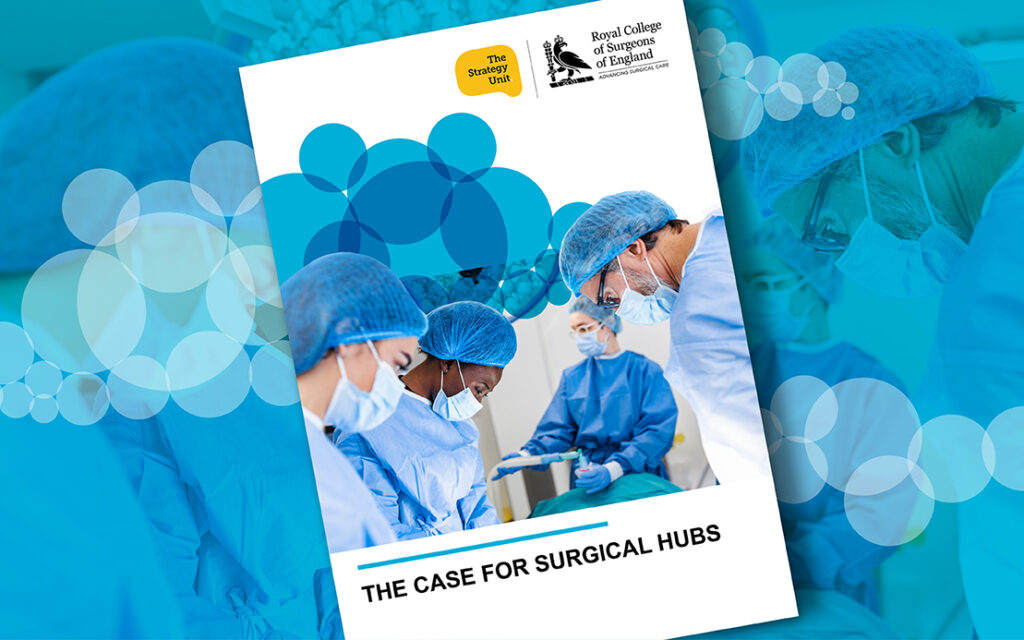 Subscribers Only
People
Subscribers Only
People 
Professor Jon Barry, Director in Wales of the Royal College of Surgeons of England, discusses the vital role surgical hubs could play in Wales.
On the 15th February, the health Minister announced the development of a new regional diagnostics and treatment centre for the southeast region located in Llantrisant.
The new facility will further develop regional working between Cwm Taf Morgannwg University Health Board, Cardiff and Vale University Health Board, and Aneurin Bevan University Health Board to improve care and access to services across southeast Wales
This is not yet the surgical hub that the Royal College of Surgeons of England have been calling for, but we hope it is the next step in a regional approach that we have been advocating and that given time and suitable resources will develop into a surgical hub. There is a long way to go for this to happen, but the signs are promising.
Waiting lists in Wales have fallen in recent months but still stand just shy of 750,000 people, or one in four of the population. Surgical hubs are a key solution our College has advocated for, to address this long-standing issue that was exacerbated by the pandemic. There is not enough ring-fenced or dedicated capacity for planned surgery.
In August 2022, RCS England published The Case for Surgical Hubs, a policy report setting out the vital role surgical hubs could play in recovering elective services across the UK. So far there are 91 Elective Surgical Hubs across the NHS in England with 57 new hubs being developed. Wales is moving in this direction and has developed Protected Elective Surgical Hubs within several health boards which we welcome.
We do however support the analysis, findings and recommendations of the National Clinical Strategy for Orthopaedic Surgery Blueprint report that is looking for a far greater regional approach recommending three hubs across Wales. Will what we see at Llantrisant become such a model only time will tell but RCSE will be making the case to the working group to develop this approach that would see high volume low complexity surgery carried out.
The RCSE report explains there are three models of hub, and a combination is needed to provide a comprehensive surgical service. We need to highlight certain areas such as ophthalmology, general surgery, trauma and orthopaedics, gynaecology, ENT and urology. Support for specialist hubs, where more complex surgery can be performed, are equally important of course. Otherwise, patients needing complex surgery may continue to face waits of more than two years.
Surgical hubs have the potential to help address variation in performance between boards, deliver efficiencies, and provide greater benefits to staff and patients alike. RCSE would like to see further use of The Getting It Right First Time (GIRFT) team in developing suitable hubs across Wales. NHS England are piloting an Elective Hub Accreditation Scheme, and this is something we are keen to see develop in Wales. The scheme will allow Boards to seek formal assessment of their hub sites, and external recognition that they work to a defined set of clinical and operational standards.
The GIRFT scheme follows our College’s recommendation that surgical hubs should be independently evaluated, to assess whether the predicted benefits accrue and to ensure the early detection of any potential unintended consequences.
The accreditation scheme is important because it will provide Boards with a clear framework of standards needed to accelerate progress and deliver effective elective hubs at pace; provide a visible marker of high standards that could be communicated to patients and staff enabling better take up of hub treatment offers, and; recognise and reward excellence in operational management, clinical standards, and patient experience.
Waiting lists in Wales are dropping, but they are small incremental drops, but we are hopeful that the approach that is beginning to develop in Wales around a surgical hub model will help to deliver Welsh patients and surgical teams real change and benefits in the years ahead.
Jon Barry is a Consultant Laparoscopic Bariatric Surgeon practising at Morriston hospital, Swansea. He co-founded the metabolic surgery unit in Swansea, the Welsh Institute of Metabolic and Obesity Surgery, in 2010. Jon Barry was appointed Director in Wales for the Royal College of Surgeons of England in September 2022.


